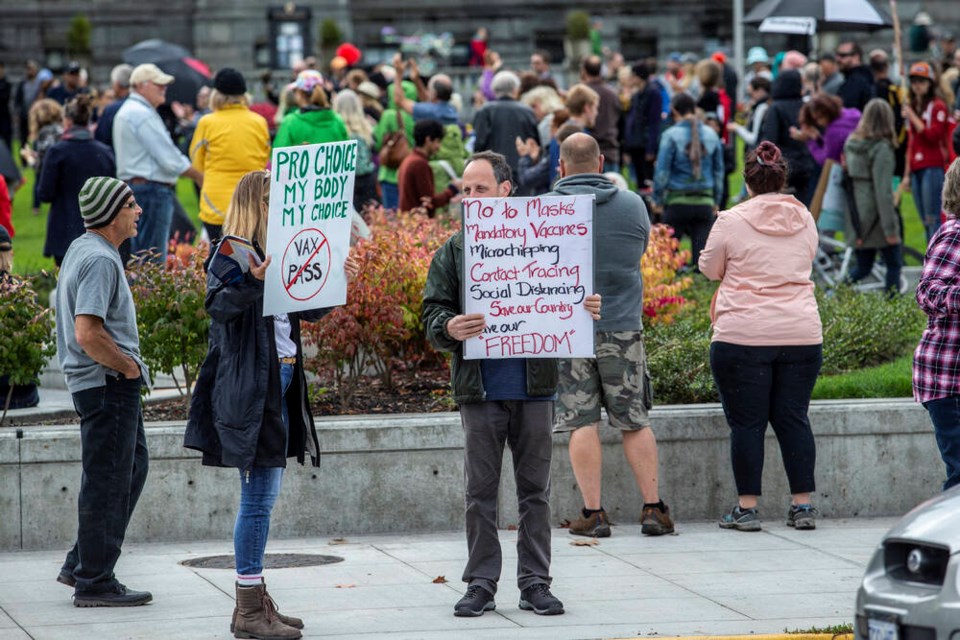For the 2021/2022 cadres of Grade 12 students, their coming launch into the post-high school adult world feels like ŌĆ£freedom.ŌĆØ
Or so they think.
If there is a single word in our language that has been successfully hijacked by self-serving agendas, ŌĆ£freedomŌĆØ is definitely that word.
When Glen Frey and Don Henley of the Eagles wrote their song ŌĆ£Desperado,ŌĆØ they couldnŌĆÖt have imagined that ŌĆ£freedomŌĆØ would become the most abused and misunderstood word of the 21st century. But the line ŌĆ£freedom, oh freedom well, thatŌĆÖs just some people talkinŌĆÖ ŌĆØ could not have been more applicable to the world our kids are moving into.
ItŌĆÖs an irony of our time that despite the range of people talking about ŌĆ£freedomŌĆØ in support of their individual and often conflicting agendas, ŌĆ£freedomŌĆØ is actually the last thing many such folks want.
A significant number of the ŌĆ£donŌĆÖt trespass on my freedomŌĆØ people just want to abandon what they see as constraints that guide civil behaviour and protect the common good.
Get a vaccine? Not me. Wear a mask? Never. Maintain a recommended distance in a group? IŌĆÖm ŌĆ£freeŌĆØ to ignore that as well. Shout and wave placards outside a hospital where people are sick and dying? Why not?
ItŌĆÖs that kind of unfettered ŌĆ£freedomŌĆØ that denies even the role of rational discourse in the defence of civilized behaviour.
As the English writer, philosopher and lay theologian G.K. Chesterton lamented, ŌĆ£modern freedom is at its root a kind of fear that we are too timid to accept responsibilities.ŌĆØ
Rejection of simple social constraints by anti-maskers, anti-vaxxers, COVID deniers and conspiracy theorists because ŌĆ£my freedomŌĆØ is challenged endangers both the survival of other individuals and the health of the general population.
And so, each day, we watch news clips of people isolating themselves within the prisons of their own opinions and choices and calling it ŌĆ£freedom.ŌĆØ
For kids about to launch into the adult world, this new view of freedom is very confusing.
It has everything to do with individual beliefs, personal ŌĆ£me onlyŌĆØ philosophies and faiths and nothing to do with the acceptance of the kind of responsibilities demanded by living in a civilized society.
So why is someone who normally writes about public education concerned about any of this?
Possibly because in these politically polarized times, what was once a simple dichotomy between right and wrong is changing in exponential ways.
The next generation, ready to be turned loose on the adult world, has, unlike their forebears, unfettered access to information, misinformation, politically motivated posturing and pandering and outright deceit for purposes undefined.
None of this has anything to do with the distinctions between right and wrong valued by earlier generations.
It is the simultaneous strength and weakness of social media that it gives users and contributors the ŌĆ£freedomŌĆØ to instantly make their unedited and unsubstantiated opinions known to the world, while at the same time feeding an emerging ŌĆ£outrage cultureŌĆØ that experts warn threatens and stifles productive discourse.
Our next generation, bombarded from all directions by conflicting versions of ŌĆ£freedom,ŌĆØ could be forgiven for experiencing the kind of confusion that results.
All of which is the antithesis of actual freedom, which, at its best, demands the habit of employing a combination of prudence and judicious critical thought based on established fact, rather than subjecting society to the consequences of the ŌĆ£freedomsŌĆØ of individual whims, impulses, desires and habits.
So what role could public education play in consistently conveying to todayŌĆÖs kids the idea that ŌĆ£freedomŌĆØ is not ŌĆ£just some people talking,ŌĆØ or, as Kris Kristofferson wrote, ŌĆ£Just another word for nothing left to loseŌĆØ?
One idea is that social studies and history curricula be organized and taught thematically rather than chronologically.
ItŌĆÖs an idea that is gaining ground as a way of introducing kids to the world of true adult freedom in a logical and informed manner.
In her book Making Citizens: Transforming Civic Learning for Diverse Social Studies Classrooms, Beth Rubin, a professor of social studies education at Rutgers University and a former social studies teacher, writes about an effort to reconstruct the modern history curriculum around five thematic units: conflict, social change, movement of peoples, the economy and government.
The role a legitimate version of freedom plays in the events that shaped these themes provides students with a meaning of freedom that takes the notion well beyond ŌĆ£just some people talking.ŌĆØ
And perhaps the central lesson that should pervade every theme is ŌĆ£insisting on your freedoms without acknowledging your responsibilities is the mark of the adolescence you are now leaving behind.ŌĆØ
Geoff Johnson is a former Superintendent of Schools.



